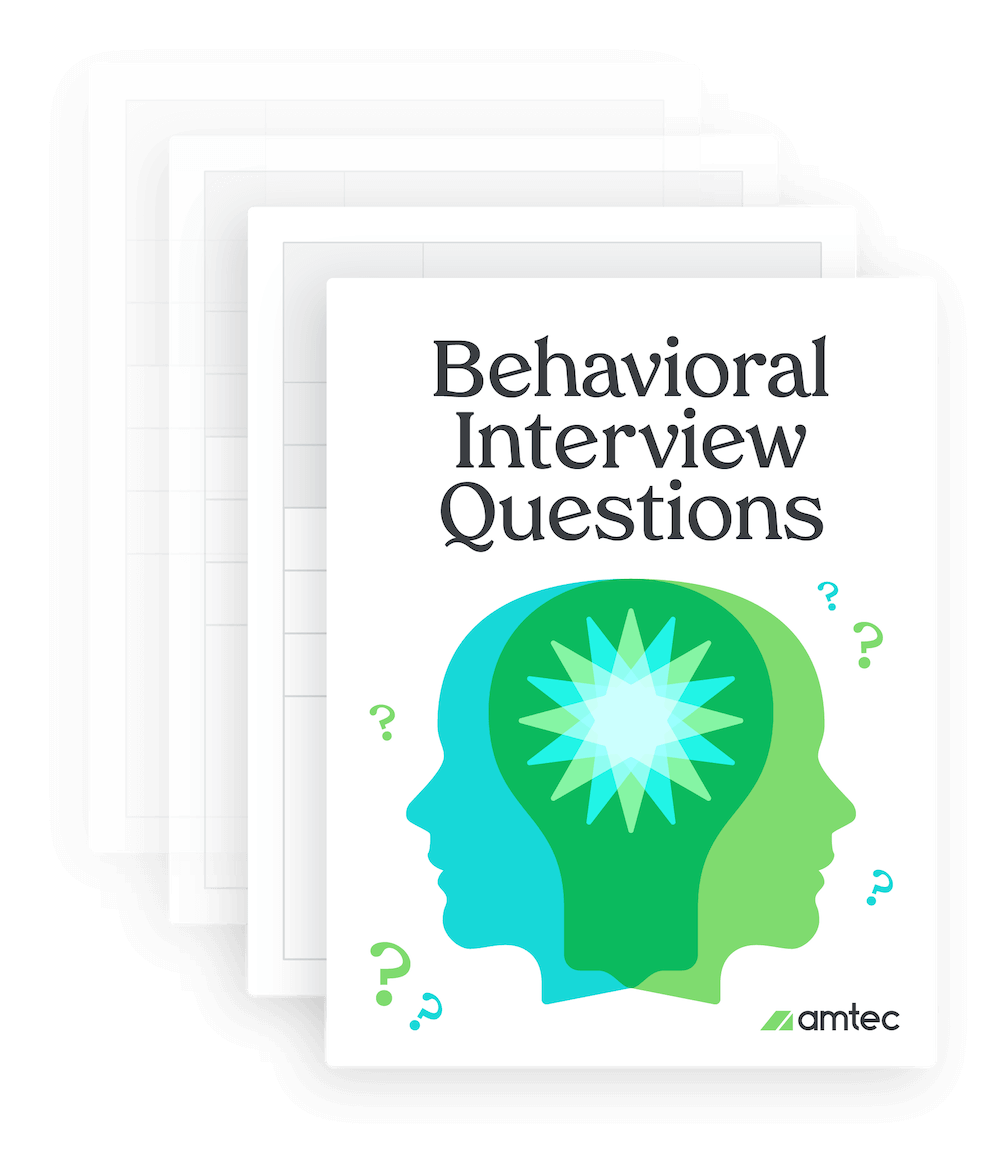
Behavioral Interview Questions Generator
We’re strong believers in behavioral interview questions. They can help you learn what you really need to know about candidates so you can make better hiring decisions and ultimately build a higher-performing team. Hiring a new team member is a big deal! You’re embarking on a relationship that will impact your entire organization. That’s why we built this interview guide tool.
Instructions: (Desktop only)
- Select up to 10 competencies you’d like to see in your new team member.
- Drag the desired competency from the left column to the right column.
- Submit the form below and we’ll send you your custom guide including helpful questions and instructions on how to score your candidates.
The following tool is not compatible with mobile devices. To utilize, please switch to a desktop device.